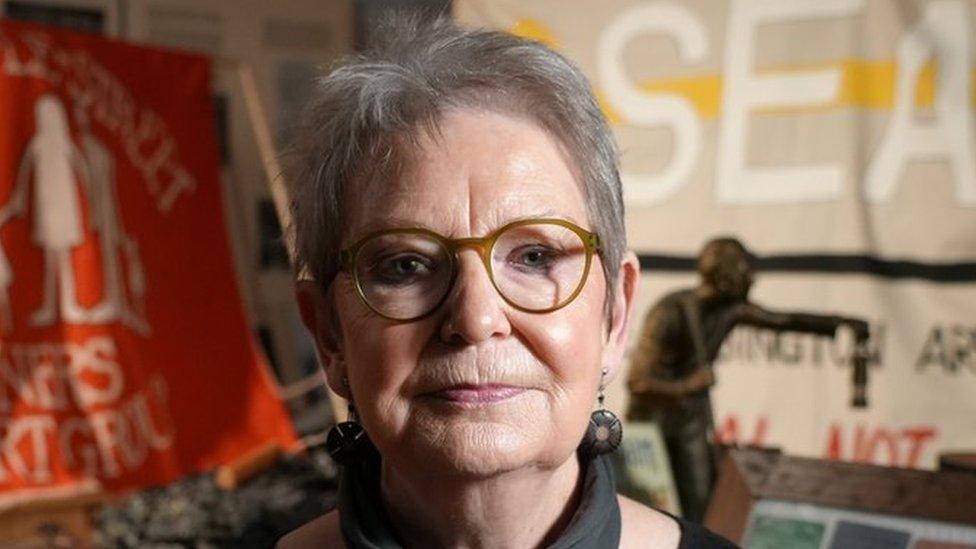Miners' strike 'developed into a little war'
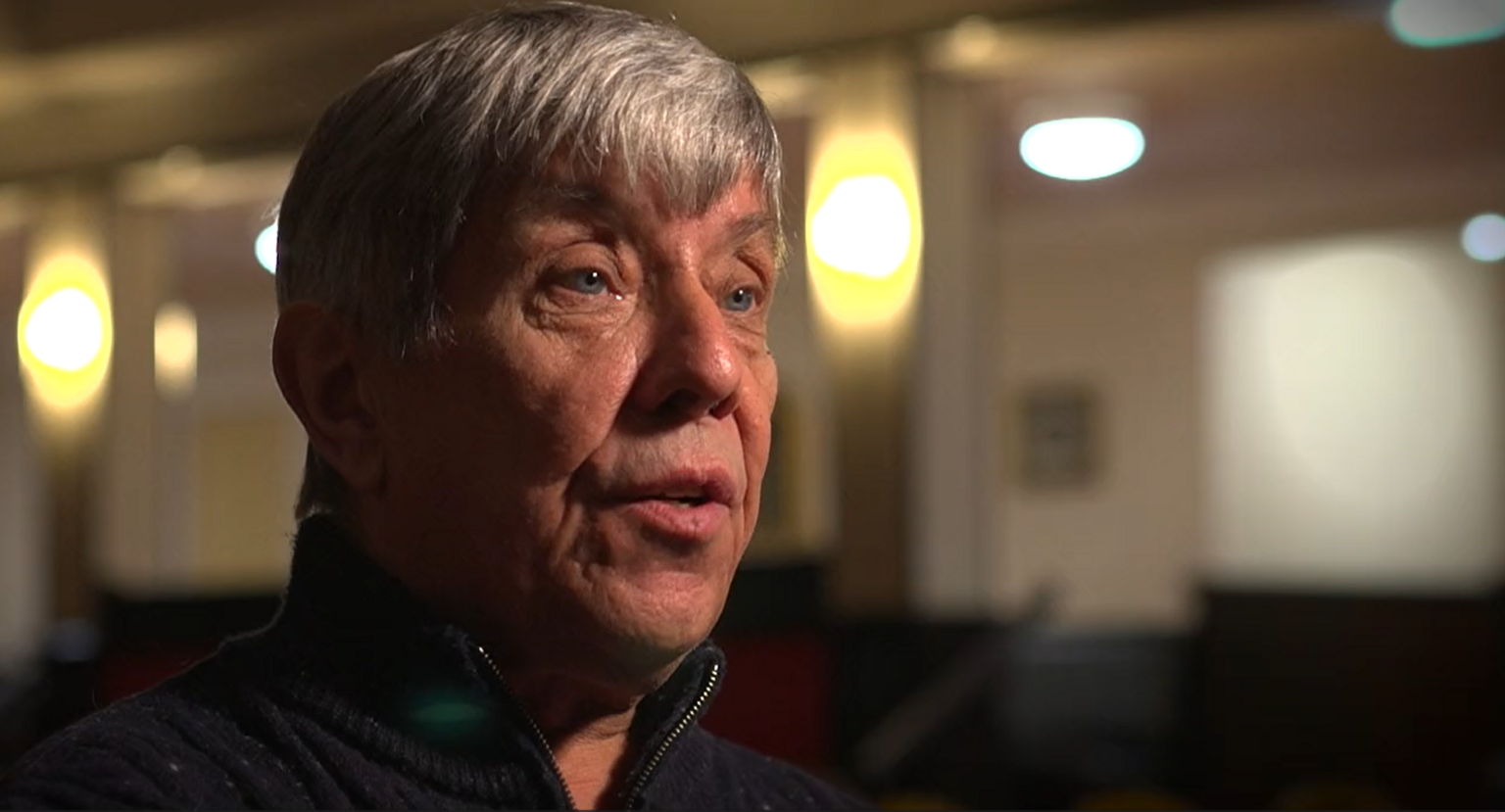
Alan Mardghum, a striking Wearmouth miner, was arrested multiple times
- Published
Forty years on from a year-long miners strike which brought violence to the streets and tore communities apart, former miners and police officers have been sharing their memories.
Alan Mardghum said those miners who went on strike were "absolute heroes".
"We were fighting for our futures, we were fighting for our communities, we were fighting for a way of life," the Wearmouth miner who joined the industrial action in 1984 said.
"It's as if it was yesterday, it brings back lots of memories and I'm proud as punch of them lads who stood and fought."
Mr Mardghum said he was convicted four or five times for breaching the peace.
"It's a bit of a badge of honour now, but there are lots of lads it did affect. Some of the lads never worked again."
'Family rifts'
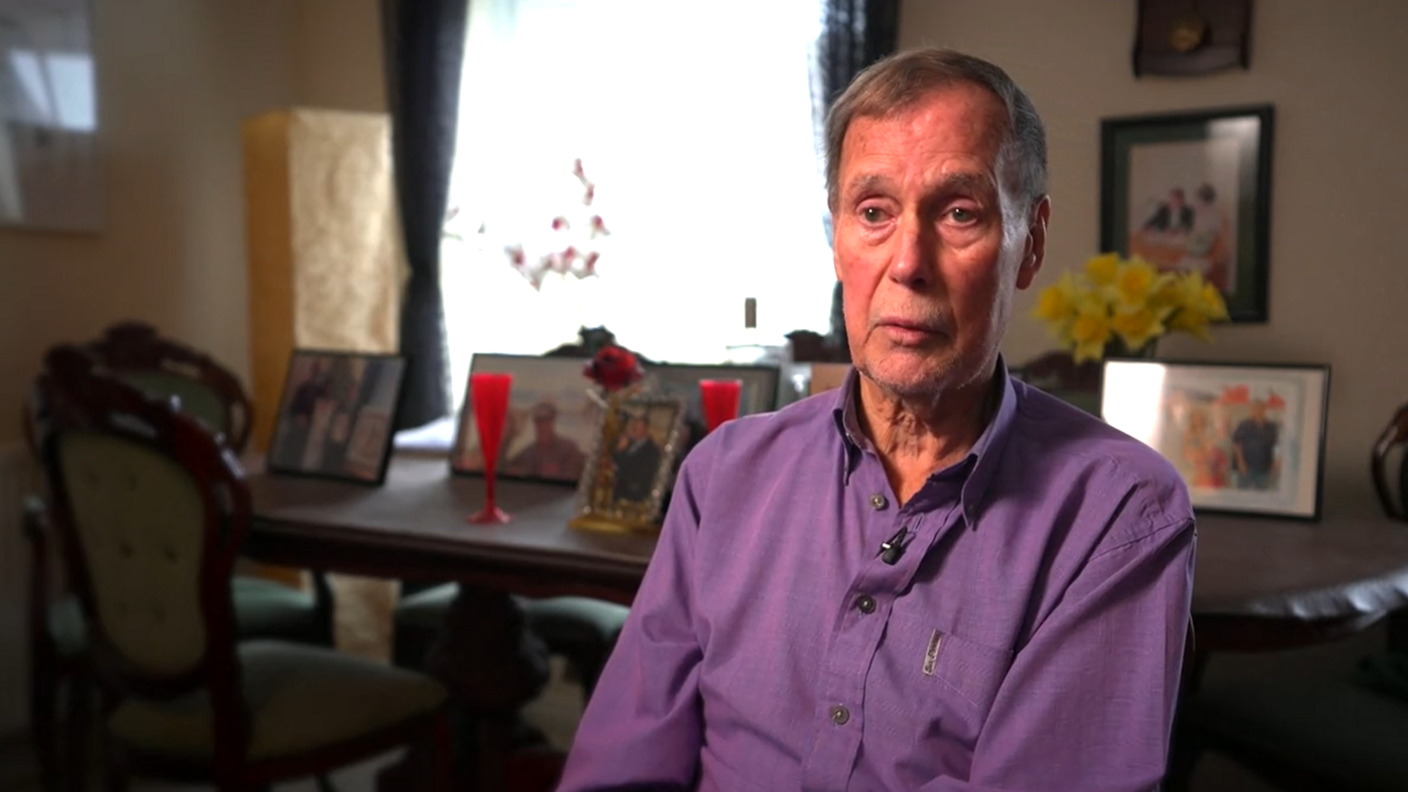
Former Durham Police Superintendent Lord Mackenzie said it took years for the force to rebuild trust
Families sometimes found themselves on both sides of the dispute, with officers policing relatives.
Lord Brian Mackenzie, the former Durham Police Superintendent, said: "Where officers had brothers who were in the mining community, obviously there was some difficulty that caused family rifts and family problems.
"I remember one officer got hit by a brick, and if he hadn't had that helmet on it could have probably killed him.
"It developed into a little war in a sense."
Lord Mackenzie also remembered how tensions were stoked by police officers drafted in from other forces.
He said officers from the Metropolitan Police would, in some cases, break the pickets and wave overtime slips and payslips to aggravate the miners.
"They would retreat eventually, back to London, leaving the Durham Police to pick up the pieces and to try and repair the community relations that had been destroyed."
'Fought gallantly'
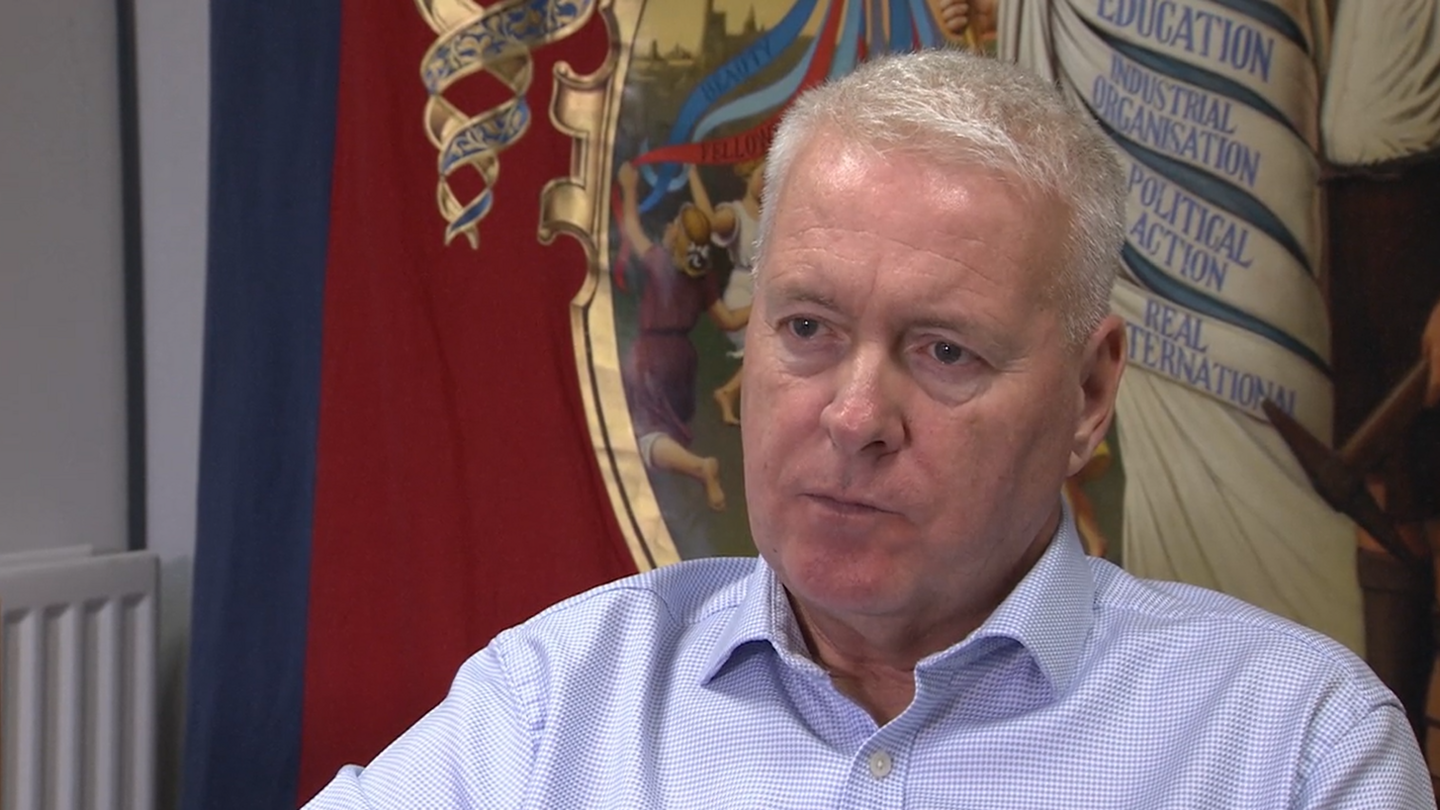
Former miner and Wansbeck MP Ian Lavery said communities had been destroyed "forever"
Labour's Wansbeck MP Ian Lavery worked at Ellington and Lynemouth collieries before becoming president of the National Union of Mineworkers in 2002.
Speaking about his experience on the picket line, he said: "A lot of people I went picketing with as a young lad fought gallantly for the community.
"A lot of them have passed on and they haven't been given any pardons, there hasn't been anybody that said that they had done nothing wrong."
Mr Lavery said the policing at the time was horrendous.
"I've seen people who had never been in trouble with the police before in their life, and never have since, battered by the police for trying to save the community and trying to save jobs for the future.
"Since the closure of the pits there's very little come back into these communities.
"They destroyed the industry. They destroyed the communities and, despite a lot of effort, the communities themselves haven't recovered and are unlikely to recover in my view."
Follow BBC North East on X (formerly Twitter), external, Facebook, external and Instagram, external. Send your story ideas to northeastandcumbria@bbc.co.uk
Related topics
- Published2 March 2024
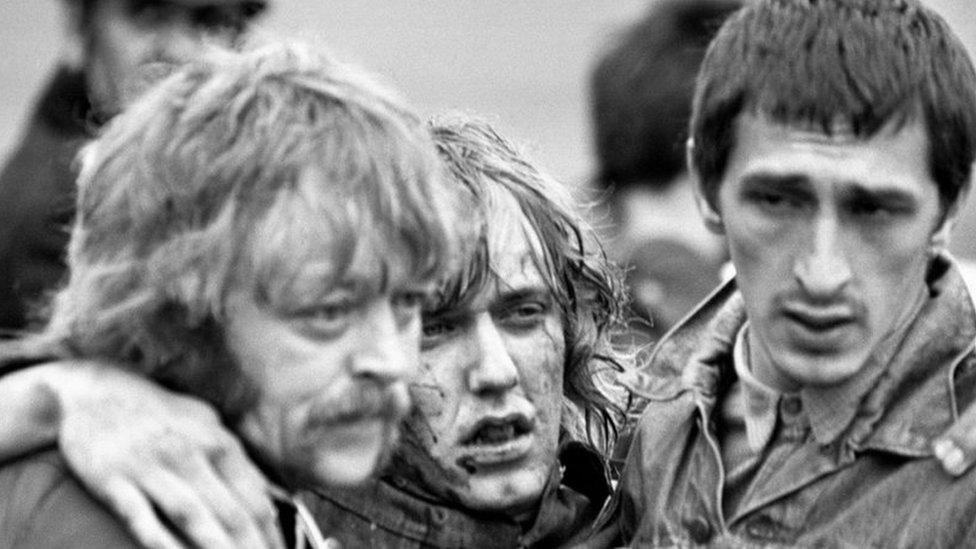
- Published1 March 2024
